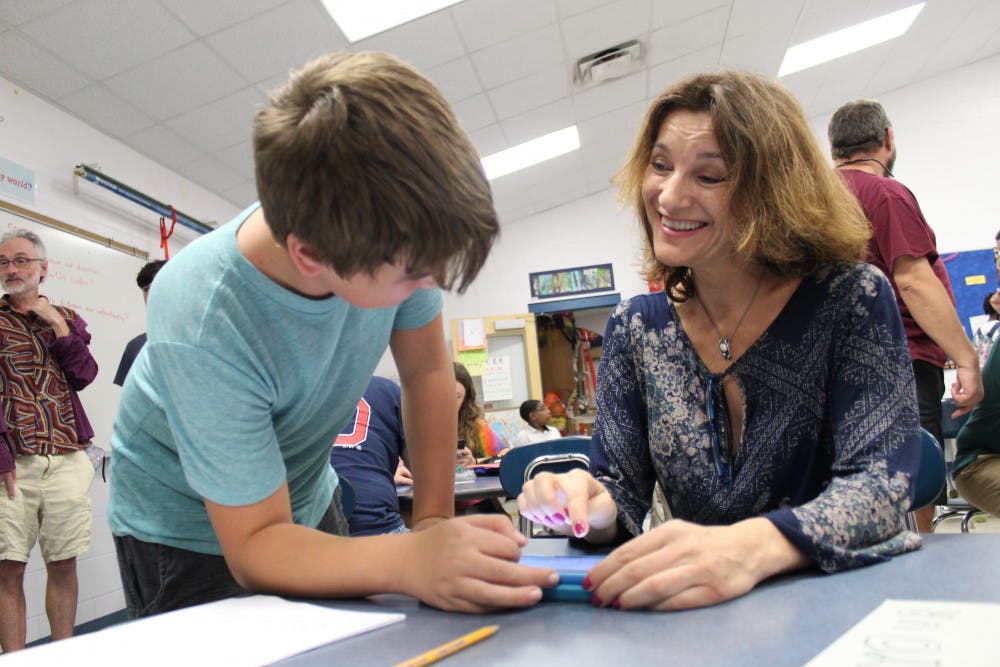For Chloe Winant, science is more than what is in a textbook.
That’s why she created the Family Science and Robotic Night four years ago.
More than 500 people attended Howard Bishop Middle School’s science engagement fair Thursday night, said Winant, a 38-year-old Howard Bishop science teacher and organizer of the event.
Strutting around with pink duct tape on her forearm and gray Crocs on her feet, Winant ran the event with student science experiments, a robotics competition, an indoor planetarium and 20 community presenters such as Hands On Gainesville and the Florida Museum of Natural History. It cost about $1,000 to put on the event, which was funded by a grant Winant applied for.
“She’s my hero,” said Amaya Hartel, the mother of 12-year-old Lander, a seventh-grade student.
Howard Bishop Middle School, located in northeast Gainesville, has a majority of students on free or reduced lunch, Winant said. The neighborhood pulls in students whose parents are affiliated with the university or are bussed in through a magnet program.
“Community likes being with community,” Winant said. “I think it’s really important for the community to engage in events like these because it sends a message to our students that people outside of the school are interested in them.”
Hunter Hazeen, an 11-year-old sixth-grader, did not conduct his own science experiment but helped his peers collect data for their projects and came out to support them.
“It’s fun finding new things and logging them as your own, not just learning about them,” Hazeen said.
Though he won’t turn 12 for another day, he already knows he wants to be a herpetologist, someone who studies reptiles, when he grows up.
“They let us know what’s around us,” Hazeen said. “We wouldn’t know what an indigo snake is without herpetologists.”
When running the mobile StarLab, a portable planetarium, John Della Costa, a 21-year-old UF astrophysics senior, said he enjoys the questions students ask him, especially about his research on black holes.
“It’s kind of like a virus,” Della Costa said. “You’re going around teaching these kids about science so maybe one day they can be in your college shoes teaching other kids about science.”
Contact Hannah Beatty at hbeatty@alligator.org and follow her on Twitter at @hannahbeatty_
Correction: This story has been updated to reflect Chloe Winant's proper age.
Amaya Hartel and her son Lander, 12, work together on an experiment about infrared consumption on mobile devices at the fourth annual Family Science and Robotics Night.






